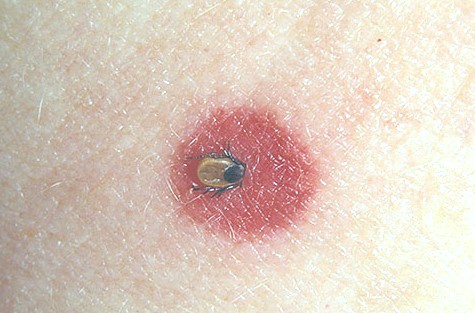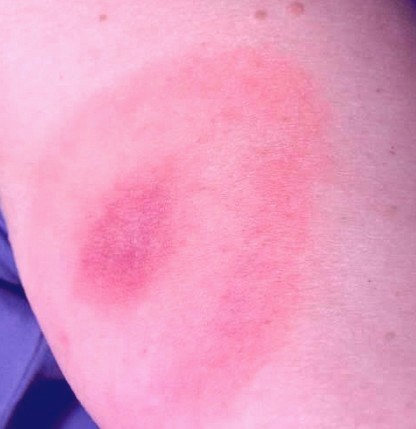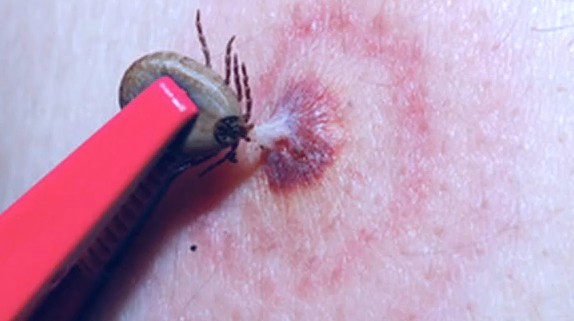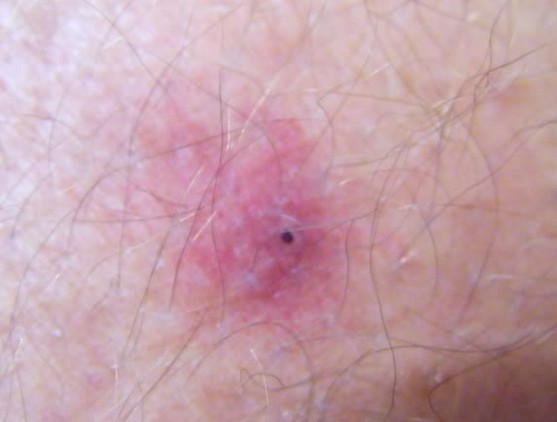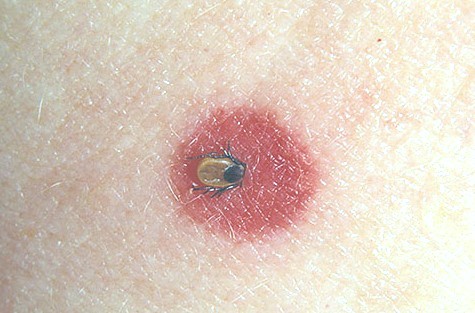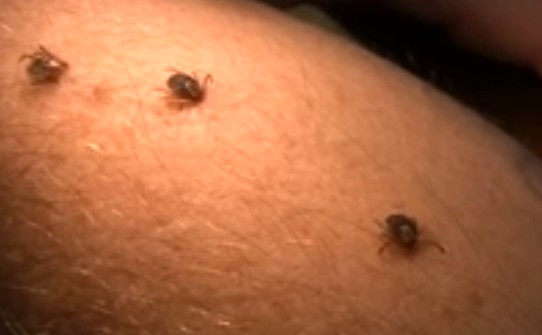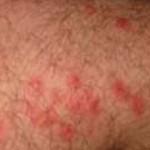There are several species of ticks, and some have been known to spread diseases such as Lyme disease. The season of the year, the type of tick and the geographic region will determine whether a tick bite will lead to Lyme disease.
There is very little risk of getting Lyme disease even after a tick has fed and dislodged itself. Ticks spread infection after they have fed for a long time on the new host. The deer tick will pass on Lyme disease after it has fed for more than 36 hours. Even in areas where the disease is common, it is very hard to get Lyme disease from a tick bite.
If you are bitten by a tick, a doctor will advise on giving antibiotics to stop the development of the disease, or simply observe and see if the disease will develop. The disease takes long to manifest, and any blood test will not show the pathogen until 2 – 6 weeks after the infection develops.
It is also important that you make a note of the kind of tick that has bitten you. You can also take it to the doctor after carefully removing it. Only the deer tick spread Lyme disease so taking it to the doctor will help in determining the way forward.
What are the symptoms of Lyme disease?
In the early stages, flu-like symptoms manifest and then clear up even without any treatment. The patient may also get a rash around the area that the tick was attached to. Usually the rash will have a red appearance, but if it looks like a bull’s eye, with a darker and raised edge then this is a sign of Lyme disease. The rash can start a few days or several weeks after the bite has occurred. It will last for weeks if not treated. The rash may be irregular in shape, and mat be mistaken for a spider bite, ringworm, or cellulitis. It is best to take preventative measures rather than wait for the disease to develop fully. While waiting for tests, the disease will only progress to later stages.
If the spirochetes are not treated early, they may go into hiding in your body tissues. Months after the infection, you will develop problems with your brain, nervous system, muscles and joints. Your reproductive system will be affected and the skin condition will deteriorate.
What is the treatment for Lyme disease?
Early Lyme
Most doctors will advise the treatment of the disease for a long period so that they are sure that the spirochetes have been removed completely. If you come from an endemic area, and the tick was poorly removed, after being attached for a long time, the doctor will not wait for the disease to develop, and will start the patient on an antibiotic regimen immediately. There are some doctors who will wait and see if the patient develops any signs of the disease before they start treatment. If you suspect that you have been bitten by a tick, then you can tell the doctor that you would prefer the immediate treatment rather than observation.
Late Lyme
All doctors agree that it is better for the disease to be treated early so that there may be better results. However, some patients who are given short term antibiotics still keep developing the disease. Lyme patients exhibit symptoms which are similar to those exhibited by people suffering from congestive heart failure. The development of late Lyme is brought about by the fact that the spirochetes do not cause the production of antibodies for testing when they are in small volumes. This means that a few may be left behind to restart the infection.
If symptoms persist, doctors have no choice but to keep on treating the disease with antibiotics. Some doctors put the patient on a regimen of antibiotics such as those used to treat long-term tuberculosis. They will use more than one different antibiotic, and keep the treatments going for a longer period. Although medicines come with some degree of side effects, the antibiotics given have very little side effects. However, you should discuss the pros and cons of having a long-term antibiotic treatment period before you begin taking the drugs.
Lyme disease has other bad effects on the body. The spirochetes suppress the immune system which makes it easier for other diseases to spring up. They also cause an imbalance in the hormonal system. Therefore the disease is one of great concern, and getting bitten by a tick should be taken as a serious occurrence.
When you are on a long term antibiotic regimen, you should think about its effects on the nutrition of the body. The drugs can interfere with the natural flora that is required for optimum digestive performance. You should therefore tale probiotics when you are on these drugs so as to keep the balance going. Also note that the antibiotics may interfere with any supplements or drugs that you may be taking, especially for opportunistic illnesses that crop up due to the suppression of the immune system by Lyme disease.
Tick Bite Pictures
